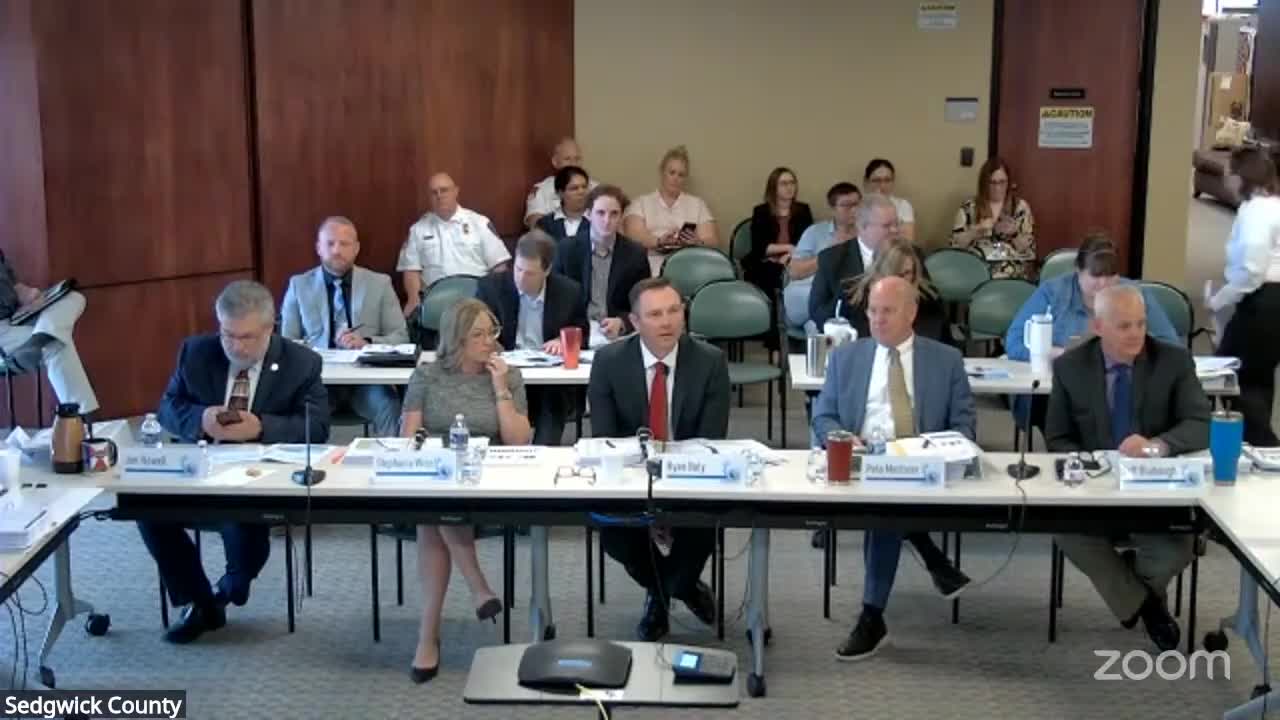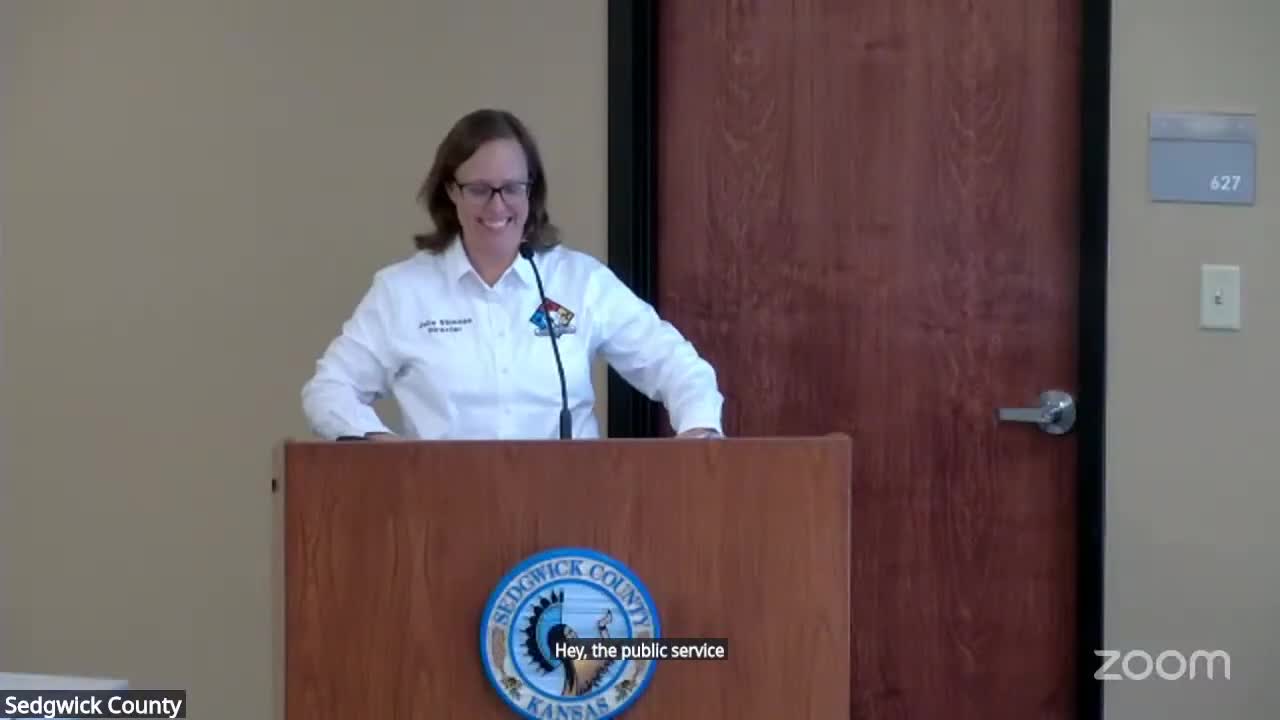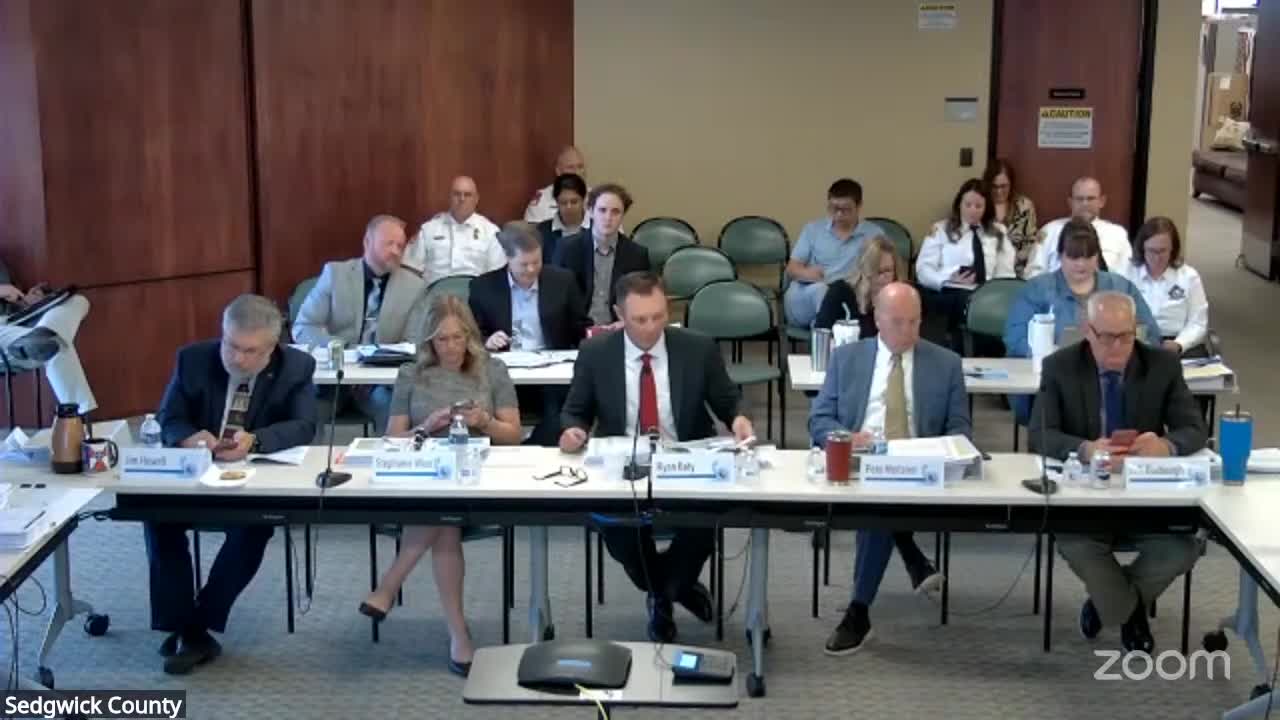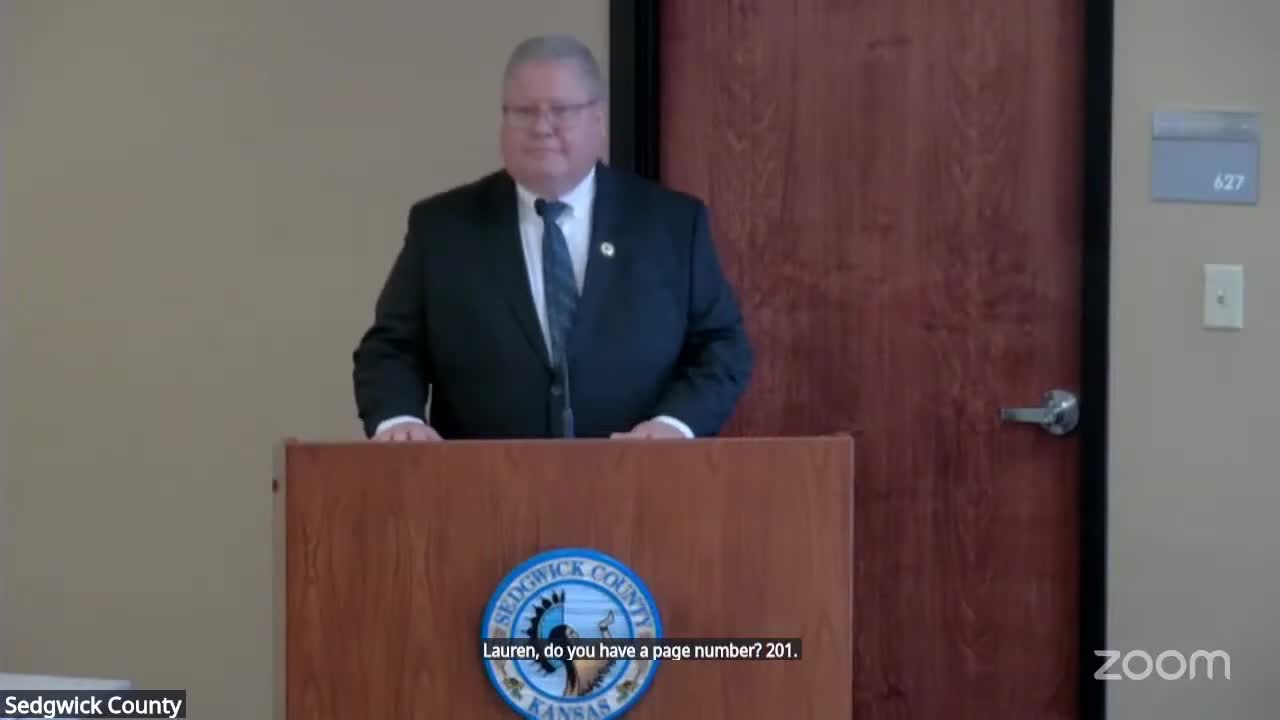Article not found
This article is no longer available. But don't worry—we've gathered other articles that discuss the same topic.

Fire district seeks dedicated fire recruit training officer as recruitment and growth accelerate

Sedgwick County EMS seeks more recruits, ambulances and safety tech amid rising call volume

Sedgwick County emergency management highlights volunteer growth and emergency‑preparedness center need

Sedgwick County 911 seeks phased staff increase, tech upgrades to separate call taking from dispatching

